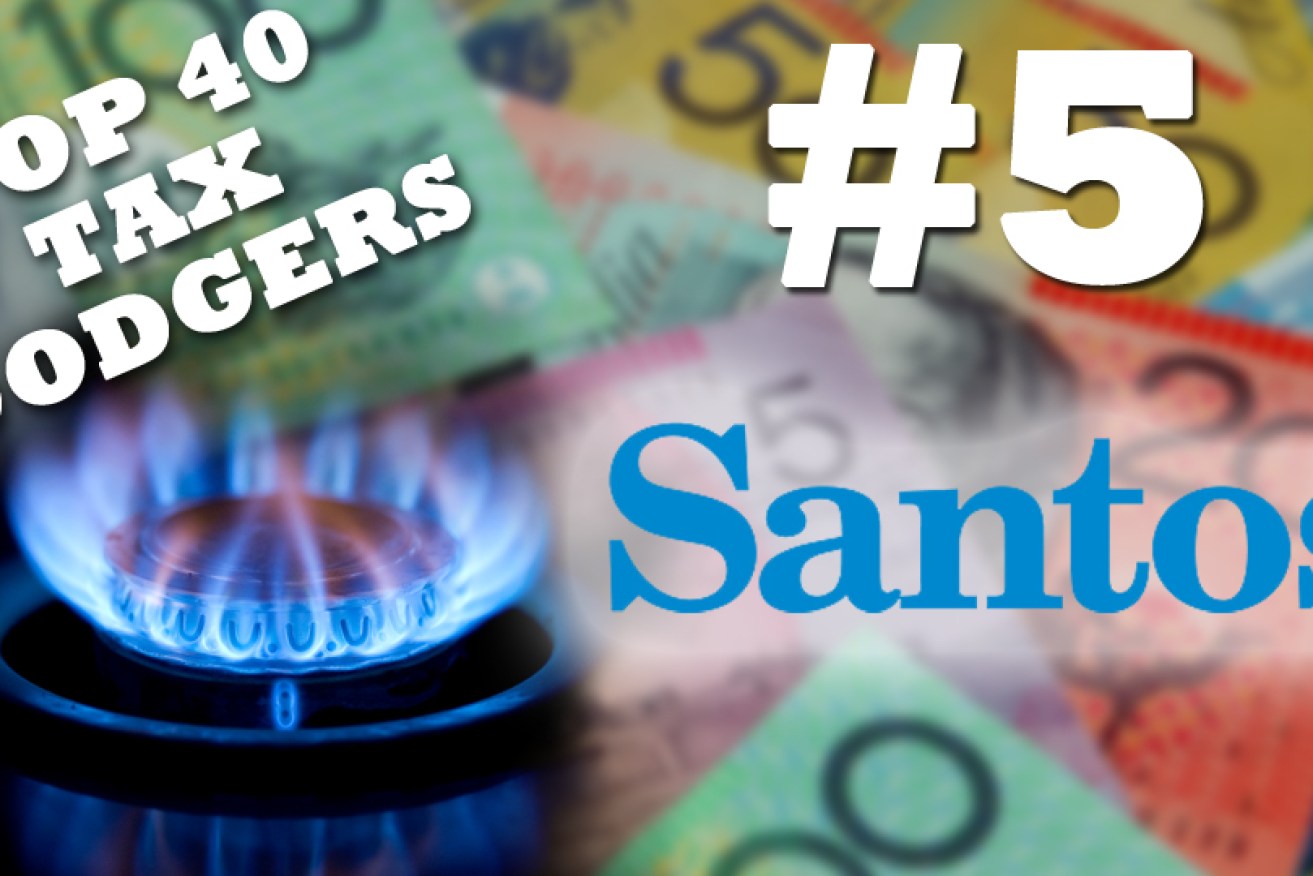Australia’s top 10 tax dodgers: Santos


Santos is the fifth biggest tax dodger in Australia, based on transparency data.
The New Daily and Michael West count down the 10 biggest corporate tax dodgers in Australia. Return on Wednesday when we reveal the nation’s 4th-biggest tax avoider.
Ludicrously generous exploration incentives help Santos – along with its multinational gas peers – pay little or no tax. This despite rising gas prices for all Australian consumers.
Ironically Santos, the most troubled entity in the oil and gas sector, managed to pay more tax than Chevron, BG (Shell), Puma and Victoria Power.
Between them, this lot booked $33.4 billion in revenue and paid not a cent in tax over the four years of available Tax Office transparency data.
Santos has racked up total income of almost $15 billion over the four years but, even on the measly $27 million left over in taxable income, it managed to pay 11.5 per cent income tax, just one third of the corporate rate. Just a touch over $3 million on $14,938 million.
Still, this miserable contribution of $3 million is a darned sight better than what its rival Origin Energy paid in the last year of the ATO data: zilch on $188 million in taxable income and $15 billion in total income.
And better, too, than gas and electricity group EnergyAustralia with its zero tax on $6.3 billion of total income, not to mention the renowned tax dodger, Exxon, with its zero tax and $8.4 billion in total income.
Like its industry peers and PR people, Santos appears to confuse royalties and taxes.
Next to the tax entry in its cashflow statements, Santos lists “royalty-related taxes paid” of $US13 million ($18.45 million) in 2018 and $US15 million ($21.29 million) the year prior. It’s not much of a payment for extracting $US6 billion ($8.5 billion) worth of natural resources that belong to all Australians.
Royalties are not taxes – they are a payment made to the state for natural resources.
In any case, there are many reasons corporations don’t pay tax, and without finessing the explanations it is remarkable that these companies, as a collective, have sucked umpteen billions of dollars a year in oil and gas from Australia’s seabeds and coal seams, but contribute virtually nothing in income tax to the societies in which they operate.
They’ve got all sorts of excuses, all true: Heavy capital expenditure, high costs, exploration losses, royalties. Still, the numbers tell the story; that one number now published every year by the ATO: Tax payable.
Santos won’t be paying much for a while either. It’s latest financial statements show $US1.75 billion ($2.48 billion) in “deferred tax assets” to match off against profits.
They also show there was tax paid in 2018, some $US69 million ($97.9 million) in 2018 and $US28 million ($39.7 million) in 2017, but it is quite likely this is tax paid in other countries such as PNG and Indonesia.
Santos has built an enormous bank of tax losses by dramatically overspending on the construction of its LNG plant at Gladstone in Queensland. Like rival gas producers, Origin and Shell, Santos overestimated global demand for gas and, as the price of gas fell globally, the company was forced to take massive write-downs to the value of its asset base.
Nonetheless, despite paying so little tax, Santos was in good enough shape last year to fork out $US1.5 billion ($2.13 billion) for the acquisition of Quadrant Energy.
This is part six of a 10-part series on the nation’s biggest tax dodgers. Click here to see part five.
For the full details of Michael West’s investigation into Australia’s 40 biggest tax dodgers you can visit his website, here.








